Estimated reading time: 9 minutes
Hey there, fellow dog lovers! Are you tossing and turning all night because your furry friend just won’t stop whining? You’re not alone. Many dog owners go through this, with their pups causing a stir for reasons like anxiety or health issues.
But don’t worry, we’ve got your back! In this article, we’re going to explore why your dog may be whining at night and share some super helpful tips to get you and your four-legged pal back to dreamland. Ready to find out how to keep the night-time peace and get a good nights sleep? Let’s get started!
Key Takeaways
- Dogs may bark and whine at night due to various reasons like pain, digestive issues, boredom, anxiety, lack of training, or being a puppy.
- To stop your dog from whining at night, make their bed comfortable and safe, address any medical issues they have, provide mental and physical stimulation during the day, use proper crate training techniques, be consistent in your response and seek professional help if needed.
- Senior dogs may experience anxiety at night causing behaviors like panting and pacing.
- Understanding the cause of your dog’s whining is important for determining the appropriate response.
Common Reasons Your Dog Cries at Night
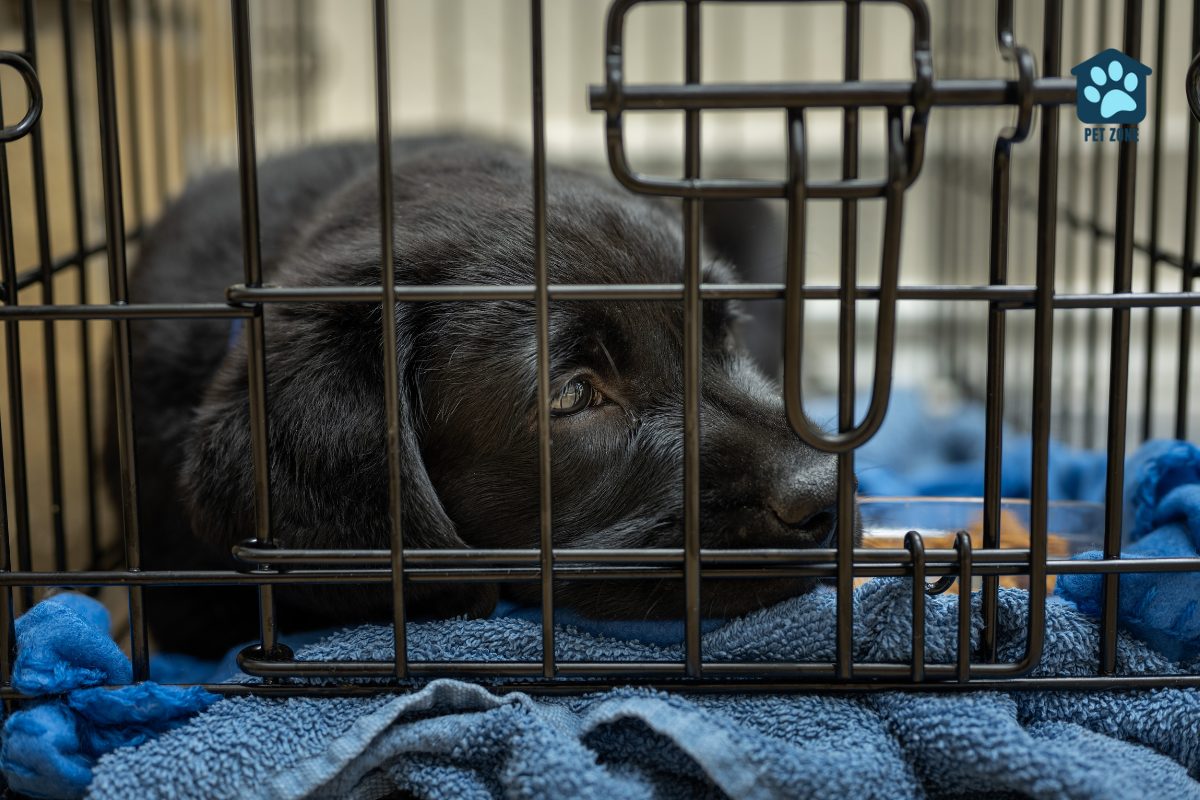
Pain or other medical problems
Dogs can whine at night due to pain or other health issues. Just like us, they feel hurt and discomfort when they are not well. Older dogs or those with chronic illnesses may often cry at night.
This is because their health probs make them feel bad. If your dog keeps whining at night without a clear reason, it is important to see the vet. The vet can check if your dog has any medical problems that are causing this behavior.
They will make sure your pet gets the right care and treatment it needs. It’s good for every pet owner to keep an eye on changes in their dog’s habits as it may show signs of pain or ill-health needing attention.
Bloating and other digestive issues
Your dog may whine at night because of bloating or other tummy troubles. Food that doesn’t agree with your pup can trigger this discomfort. This might make their belly look swollen and they might seem upset.
Some dogs can have mild cases where they eat something bad once. However, others face severe conditions like gastric dilatation volvulus (GDV) or pancreatitis, which need immediate help from a vet.
Always keep an eye out for signs of distress in your pet to stop them from crying all night long.
Boredom
Dogs also whine at night when they get bored. If your dog isn’t tired or doesn’t have toys to play with, it may start whining. Just like people, dogs need things to do. A tired dog will sleep at night and stay quiet.
During the day, make sure to give your dog walks and play time. This will help them stop this behavior of crying all night long. It’s part of training your older dog or new puppy how not to cry at night for no reason.
Anxiety and separation anxiety
Anxiety and separation anxiety can make dogs whine at night. When dogs are overly attached to their owners, they feel stressed when left alone, leading to behaviors like howling or whining. Some signs of separation anxiety include pacing, trembling, and destructive actions.
Senior dogs may also experience anxiety at night, which can cause panting, pacing, and whining.
The good news is that you can train your dog to be calm and reduce their separation anxiety through specific exercises. It’s important to address and reduce the underlying triggers of anxiety in order to stop your dog from whining at night.
Lack of training
A lack of training can contribute to your dog whining at night. If your dog hasn’t been taught proper behaviors and boundaries, they may resort to whining as a way to get attention or communicate their needs.
It’s important to invest time and effort in training your dog, teaching them commands, and setting clear expectations. This will help them understand what is acceptable behavior during nighttime hours and reduce their need to whine for attention or other reasons.
Consistency is key when it comes to training, so make sure everyone in the household follows the same rules and reinforces positive behaviors.
Being a puppy
Puppies are more likely to whine at night because they’re still young and getting used to their new surroundings. They may feel anxious or lonely without their littermates and mother. The transition can be overwhelming, leading them to cry for attention or comfort.
Crate training can help to stop your puppy crying at night by providing a safe and cozy space for them to sleep in.
Remember, it’s important not to give excessive attention when they whine, as this might reinforce the behavior. Instead, focus on making their crate comfortable with soft bedding and toys that provide comfort without encouraging them to stay awake all night.
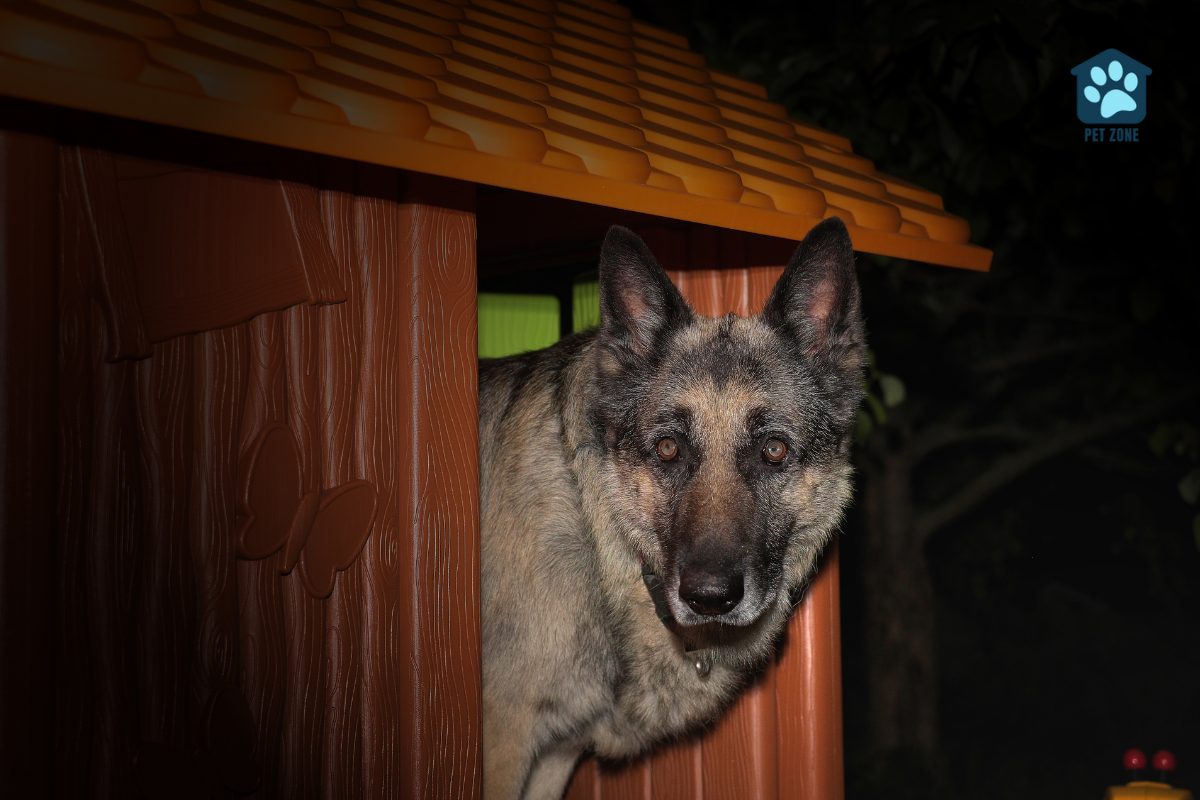
Strategies to Prevent Your Dog From Whining at Night
To effectively stop your dog from whining at night, there are several strategies you can implement. Making the bed a comfortable and safe space for your dog is essential, as they are more likely to whine if they are uncomfortable or feel unsafe.
Additionally, addressing any medical issues that may be causing pain or discomfort for your dog is crucial. Providing mental and physical stimulation during the day can help tire them out and prevent boredom-induced whining at night.
Proper crate training is also important, as it teaches your dog that their crate is their designated sleeping area. Consistency and reinforcement in training will help reinforce positive behaviors and discourage whining.
If necessary, seeking professional help from a dog trainer can provide additional guidance on how to stop your dog from whining at night. Remember to use positive reinforcement techniques when implementing these strategies with your pet.
Making the bed a comfortable and safe space
To stop your dog from whining at night, it’s important to make their bed a comfortable and safe space. You can do this by providing them with a cozy dog bed or blanket that they enjoy sleeping on.
It’s also helpful to place their bed in a quiet and calm area of the house where they feel secure. Additionally, consider using crate training if your dog prefers it, as having their own designated space can help them feel more relaxed at night.
Remember to choose an appropriately sized crate that allows them to move comfortably. By creating a comfortable sleeping environment for your dog, you can help reduce their nighttime whining and promote better sleep for both of you.
Addressing medical issues
Medical issues can cause dogs to whine at night. It’s important to address these issues so your dog can sleep peacefully. Here are some strategies:
- Take your dog to the vet for a check-up and discuss any concerns about their health.
- If your dog is in pain, follow the vet’s recommendations for managing their pain and discomfort.
- Provide appropriate medication if prescribed by the vet to alleviate any medical conditions causing the whining.
- Ensure that your dog’s diet is suitable for their age, breed, and any specific health needs they have.
- Consider adjusting feeding times to avoid late-night hunger or digestive issues that may lead to whining.
- Make sure your dog has access to water throughout the night.
Providing mental and physical stimulation during the day
To stop your dog from whining at night, it’s important to provide them with mental and physical stimulation during the day. Here are some strategies to help:
- Take your dog for a long walk or play an active game of fetch to get their energy out.
- Engage in interactive play sessions with toys that challenge their brains, such as puzzle toys or treat-dispensing toys.
- Teach your dog new tricks or commands to keep their mind stimulated.
- Set up playdates with other friendly dogs for socialization and exercise.
- Consider enrolling your dog in obedience classes or agility training to keep them mentally and physically active.
Proper crate training
To stop your dog from whining at night, proper crate training can be effective. Here are some strategies to help:
- Choose the right-sized crate: Make sure the crate is big enough for your dog to stand up, turn around, and lie down comfortably.
- Create a positive association: Make the crate a pleasant place by putting cozy bedding and toys inside. Give treats or praise when your dog goes in willingly.
- Gradually increase crate time: Begin by having short periods where your dog stays in the crate with the door closed. Slowly increase the duration over time, rewarding good behavior.
- Use a consistent routine: Establish a regular schedule for crate time, including bedtime. This helps your dog understand what is expected and reduces anxiety.
- Ignore whining: If your dog whines or cries in the crate, avoid giving attention or letting them out immediately. Wait until they calm down before opening the door.
- Provide mental and physical stimulation: Ensure your dog has plenty of exercise and mental stimulation during the day to reduce restlessness at night.
Consistency and reinforcement
Consistency and reinforcement are essential when it comes to stopping your dog from whining at night. Dogs thrive on routine, so establish a consistent bedtime routine and stick to it every night.
This includes feeding, exercise, and potty breaks at the same time each day. Additionally, reinforce positive behaviors by rewarding your dog with treats or praise when they are quiet and calm in their sleeping area.
Consistency in your response will help teach your dog that nighttime is for rest and sleep, not crying for attention. Remember that ignoring the whining can also be effective as long as you ensure the dog’s needs are met beforehand.
Seeking professional help if needed
If you’re having trouble getting your dog to stop whining at night, don’t hesitate to seek professional help. A dog trainer or behaviorist can provide valuable guidance and training techniques tailored to your specific situation.
They can also help identify any underlying medical issues that may be causing the whining. By working with a professional, you can ensure that you’re taking the necessary steps to address the problem effectively and create a peaceful sleep environment for both you and your furry friend.
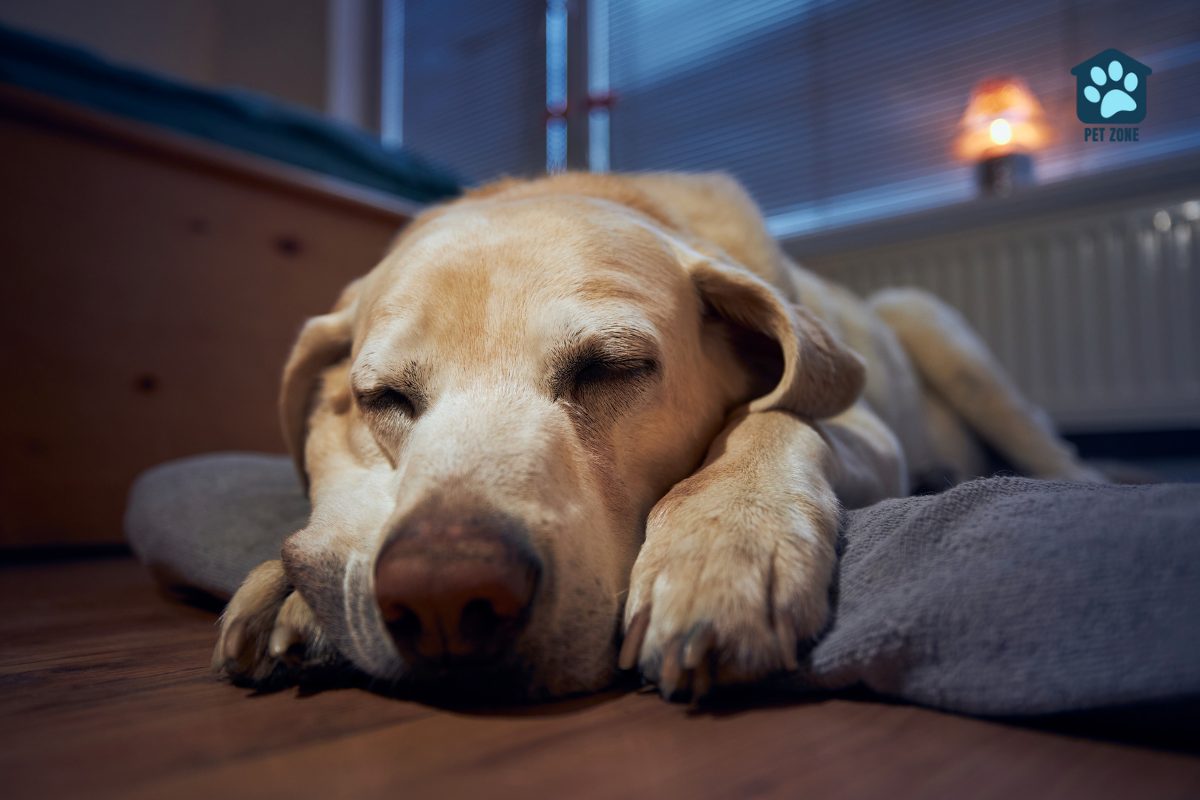
Conclusion
Stopping your dog from whining at night is possible with the right strategies. By creating a comfortable sleeping space, addressing any medical issues, providing mental and physical stimulation during the day, and using proper crate training techniques, you can help your dog have a peaceful sleep.
Remember to be consistent and reinforce positive behavior, seek professional help if needed, and ensure your dog’s needs are met. With patience and effort, you can enjoy quiet nights with your furry friend.
As an Amazon Associate I earn from qualifying purchases.
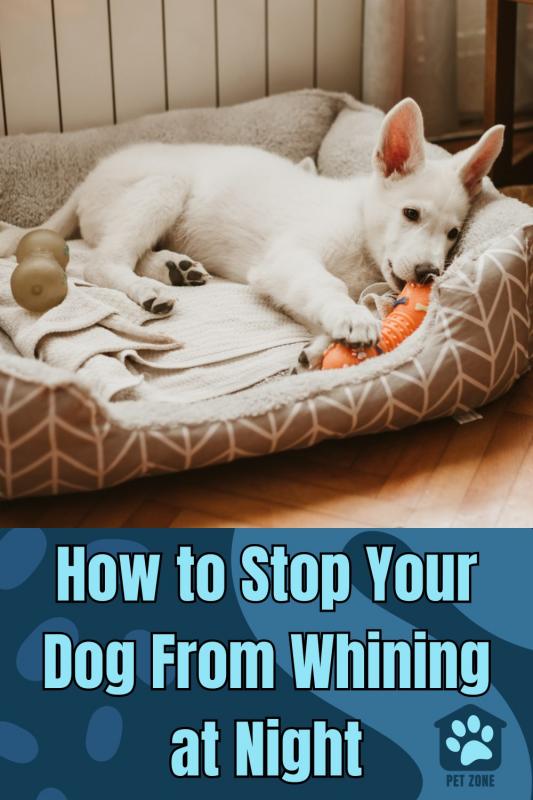


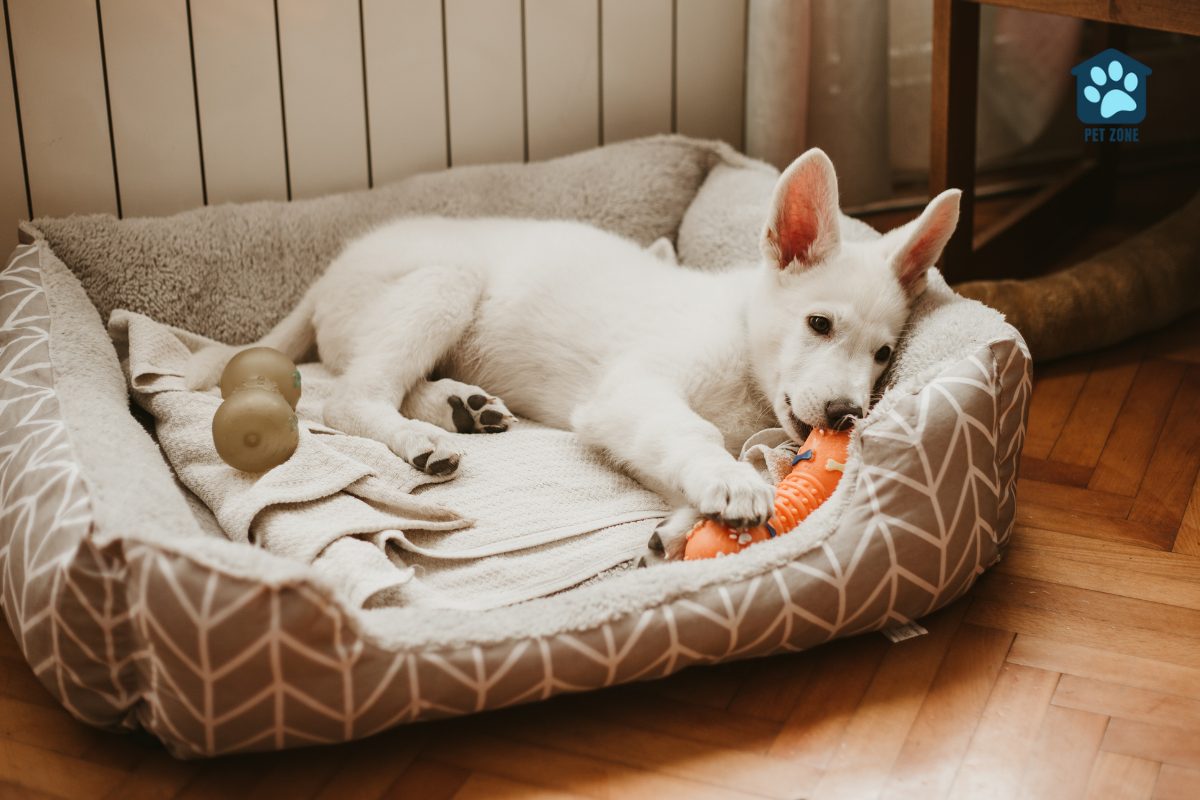


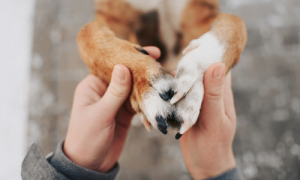
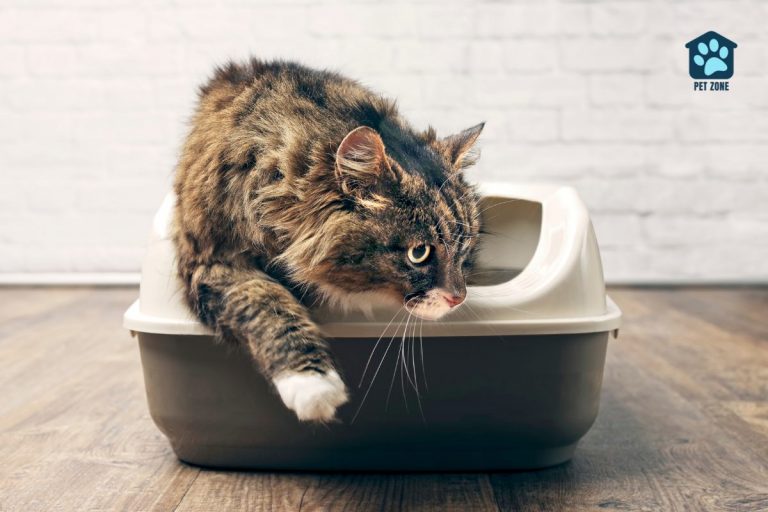


I always find great pet tips on this site!
Great article!
Awesome article! definitely will keep these tips in mind 🙂
Very Interesting and informative post. Had no idea that dogs experience anxiety. I do not own a dog, but these are some good tips to bear in mind.
I will never forget the first couple of weeks when we got our puppy. We got him a very cozy bed, but during the night, he would randomly start a party and bite into it for play. He got really wild!
It didn’t matter how much we trained with him. He just had an enormous amount of energy (still to this day after 6 years…6-8 miles walks each day).
We addressed that by taking it away for 1-2 nights, and he never did it again. Now he is the best dog ever sleeping at night 🙂